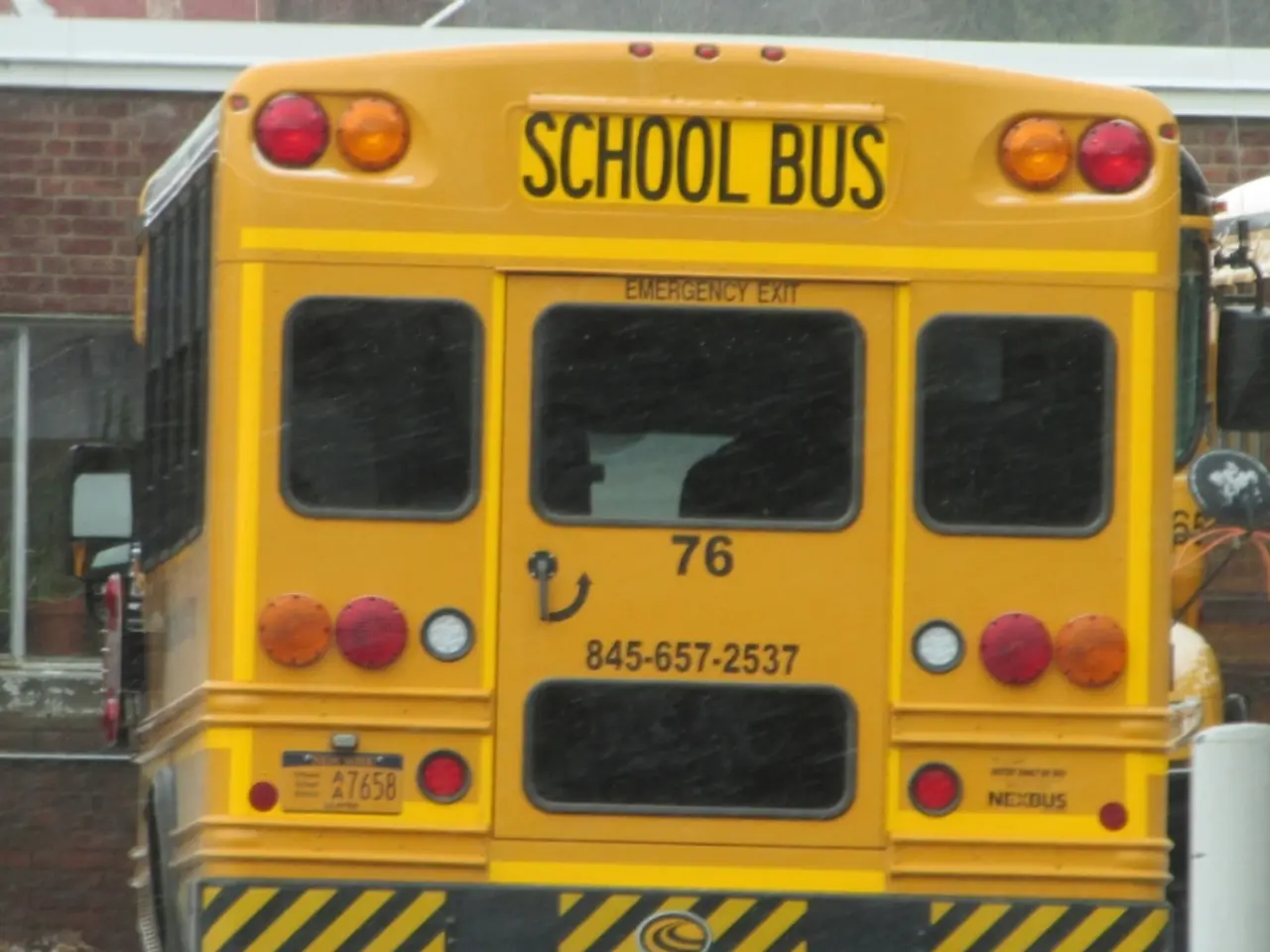Contemplating a residential change to avoid increased private school fees under Labour's policies?
Private school fees and the property market are set to undergo significant changes, with the anticipated implementation of Labour's policy to add VAT to private school fees not expected until September 2025. This policy has sparked a wave of predictions and debates among industry experts.
Dominic Agace, the chief executive at estate agency Winkworth, foresees an increase in parents opting for a hybrid version of private and state schools. Meanwhile, estate agents predict an increase in demand for properties near good state schools due to the VAT change, leading to a 20% premium on such homes.
Recoco Property Search reports that 42% of its clients over the past 18 months instructed the buying agent to act to find them a property to access better schools. This trend is further supported by research by wealth manager Saltus, which found that 63% of its clients have actually bought properties to access better schools.
However, the policy has not been without controversy. Critics claim that the policy will cause private institutions to close and put extra pressure on the state sector. Nigel Bishop of Recoco Property Search labels the Labour's VAT on school fees policy as one of the party's more controversial ones.
The average day fee for private schools rose 8% to £6,021 per term, and some parents may find it challenging to meet these costs with the addition of VAT. Research by Saltus found that 50% of parents would be able to keep their child or children in private education but would have to make changes, such as moving from boarding to becoming a day pupil or enrolling in a cheaper school.
In some cases, it's worth considering a trust, either a bare trust or an education trust, to manage the costs of school fees. Sarah Coles, head of personal finance for Hargreaves Lansdown, suggests exploring help from schools, especially for academically, musically, or athletically gifted children. Schools often offer discounts for siblings, staff members, or those doing specific jobs such as the clergy or armed forces.
If schools add VAT to this cost, it would push up the seven-year bill to £168,633 for a secondary school career. However, it's essential to note that there is no specific estimate found regarding the possible increase in school costs for private school students if VAT is applied to school fees.
The Labour Party argues that this policy will help boost the quality of other schools. Yet, critics fear that the closure of private schools could lead to increased pressure on the state sector. Parents are already taking steps to prepare for the potential increase in fees, with some considering selling their homes to manage the costs.
The average asking price for a top of the ladder home is £689,810, according to Rightmove. Legal, mortgage, moving, and selling fees, as well as costs to sell one's own home, can run into thousands of pounds when moving home. It's crucial for parents to consider these additional costs when planning for the future.
In conclusion, the proposed Labour policy to add VAT to private school fees is set to reshape the education landscape. While some parents may need to adjust their plans, others may find opportunities in the changing market. As always, it's essential to research and plan thoroughly to make informed decisions.




